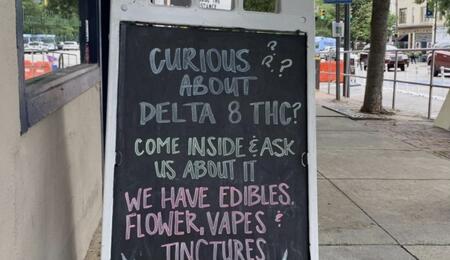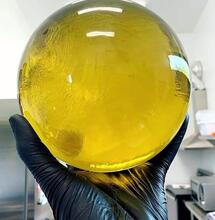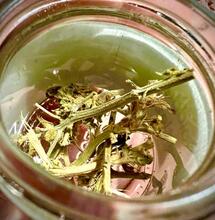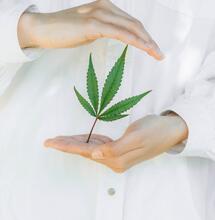Public Health warnings made as Delta-8 THC hospitalises over 100 people.

This week, federal health regulators warned that more than 100 people in the USA had been hospitalised after consuming Delta-8 THC products so far this year.
The cases detailed admissions to children's intensive care units along with over 600 calls to local poison control centres, who in response have added a new code, especially for Delta-8 exposure. Luckily, so far, there have been no fatalities.
The CDC (Centers for Disease Control and Prevention) issued
a public health alert on Tuesday, September 14th, to warn that Delta-8 products are being mislabeled and created negligently. Something which comes as no surprise given the grey area of regulation that currently surrounds this controversial cannabinoid. So far, no specific product names have been revealed as being involved. The FDA (Food and Drugs Administration) warned that delta-8 THC might have potentially harmful by-products due to the chemicals used in its manufacture.
Delta-8 THC products have increased the availability of psychoactive products in the cannabis and hemp marketplaces. This is the case in both legal states and states where non-medical adult cannabis use is still illegal. Sales of Delta-8 have soared in the last 12-18 months, with the product eclipsing CBD sales in many areas.
Delta-8-THC is an isomer of the psychoactive cannabinoid THC that occurs naturally in the cannabis plant. It is only found in tiny amounts naturally at less than 0.1% of the plant's chemical composition. However, mildly psychoactive, Delta-8 can be mass-produced from cheap, hemp-derived CBD distillate and isolate.
This has given rise to products that offer the intoxicating effects of regular THC without needing to be sourced from cannabis. Something which isn't legal in all states and is still illegal under federal law.
This is the latest drama surrounding Delta-8 as state legislators move to re-classify this ambiguous lovechild of THC and CBD as a controlled substance and ban its sale.
However, the fear is that this situation will continue to re-occur as more derivatives are created to get around existing legislation. Manufacturers are already creating alternative substances to replace Delta-8 as we speak. This includes the controversial THC-O-Acetate, which is allegedly more potent than Delta-9- THC and can have longer-lasting effects. THC-O-acetate is a product that can be made from manipulating hemp-derived Delta-8 THC
Companies will not stop making products like delta-8 THC, not when they prove profitable and cheap to make. As it stands, it is much cheaper to convert CBD isolate into Delta-8-THC or THC-O-acetate than to grow Cannabis for its THC. Whilst demand for these sorts of products remains high, so will the rush to bring new products to market. All of which could have question marks over their safety and long-term effects on the end-user.









